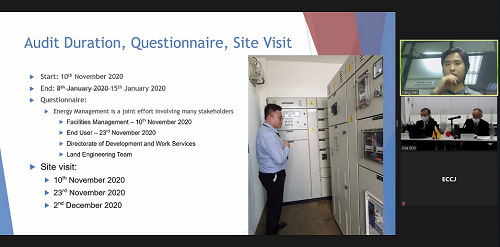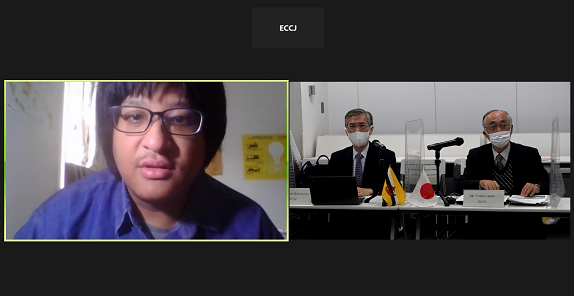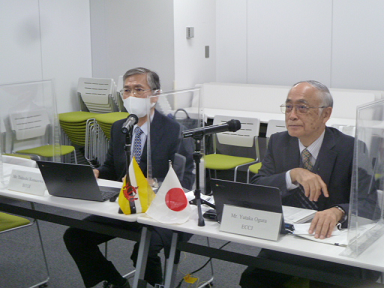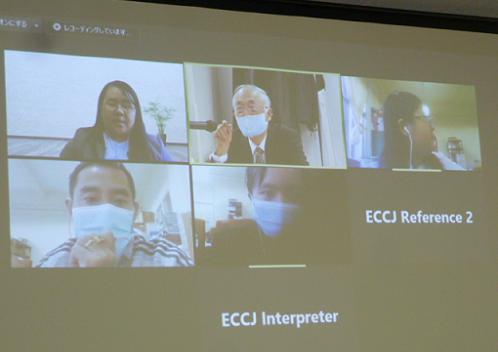Implementation of energy audit intermediate checks as part of the energy conservation support project for ASEAN countries in FY2020
Under the instruction and financial support of the Ministry of Economy, Trade and Industry (METI) (in the project for contributing to the rational use of energy in developing nations and the EE&C capacity building program), the Energy Conservation Center, Japan (ECCJ) implemented energy audit intermediate checks online and checked each country’s energy audit progress situation during a five-day period comprising December 7, 8, 11, 22 and 23, 2020. Previously, experts were dispatched from Japan to participate in the actual audits and provide advice. However, due to the impact of the COVID-19 pandemic, in the current fiscal year intermediate checks were implemented using the method of having the audits conducted in each country and confirming the implementation situation online. Activities included the following.
(1) Reporting of audit plans, audit progress situations, and data analyzing situations by each ASEAN country
(2) Provision of advice relating to data analyzing methods and report compilation methods
(3) Confirmation of report submissions for ECAP22
Views of the online meeting
 |
 |
 |
 |
ECCJ implemented energy audit intermediate checks online as the second part of the Scheme 2 Program in the “EE&C Capacity Building Program for ASEAN Countries in FY2020”. A total of 17 persons participated in the online meeting, consisting of 16 qualified energy manager trainer candidates from each of the ASEAN countries and one person from the ASEAN Centre for Energy (ACE). The participants gave reports concerning the energy audit progress situations in their countries, and question and answer sessions were held.
(1) ECCJ received reports from the meeting participants in each ASEAN country relating to the situation of the energy audits implemented until now in their country.
(2) ECCJ provided guidance on items including the methods of analyzing acquired data and the ways to compile the data into reports.
(3) The COVID-19 pandemic is currently preventing activities such as the dispatch of experts to visit the audit sites in each ASEAN country. ECCJ confirmed that the meeting participants in each country were proceeding with the preparation of their final reports while receiving cooperation from existing trainers.
(4) Comprehensive assessment will be made of the results of the examinations conducted during the online training that was implemented in Thailand in December and the final reporting and examination results from ECAP22 which is to be held in February in order to award certification as trainers.

